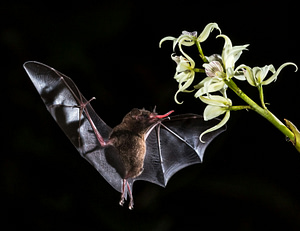Collaboration is key for our transition to a less impactful food system. Thomas Mason, who presented at CropWorld Global 2016 in October, delves into its importance.
Our current food system is one of the largest drivers of climate change and biodiversity loss on the planet and has significant impacts on the livelihoods of billions of people across the globe. In this short blog, I want to focus on one issue in particular, which is the pressure on the current total land available for food production.
There are a number of factors putting added pressure on the land available to food production, with population increase and diet shifts causing a strain, as is the increasing demand the crops for biobased products and biofuels, as well as the expansion of urban areas. As more agricultural land repurposed for other uses, the amount of land used to produce food for direct human consumption is being reduced. Combined with a growing population, farmers are pressured to produce more food from less land. This macro-trend has a variety of practical consequences. Alongside intensifying their processes with more fertilizer and other inputs, farmers are converting other land – such as biodiverse rainforests or marginal grassland – to farmland.
As much as these impacts are important, it’s also important to understand them as symptoms of a larger set of root causes that are associated with our current food system. The root causes are not controlled by a single stakeholder, but are problems that require people to recognise their individual role in the larger picture. Once people recognise this, as well as their need to work together as part of a larger system, it will be possible to transition away from our current impactful food system.
For this fundamental shift to be possible, collaboration is paramount. In Metabolic’s work in aiding a transition to a circular economy, our collaboration with stakeholders (such as WWF) has always been at the forefront of our work. In North East Brabant, where we are working with stakeholders from business, education and government sectors, we have been developing a shared vision for a circular food system for the region. The project’s energy and promise is precisely due to a group of organizations that see the value in working together and want to invest in collaboration. For collaboration like this to grow and continue it needs to be supported by new tools and technologies that help people share information and work together in order to realise a circular food system.
At CropWorld Global 2016, I was encouraged to see such tools and technologies being developed. I had the opportunity to talk to a few organizations that are taking new approaches to collaboration tools which are yielding concrete impacts. FieldMargin is a farm mapping tool with ambitions to utilise the insight generated from big open data analysis. It combines this approach with the handiness of communicating insights in an integrated, visual, and simple manner directly to the farmer’s phone. Building on this it allows the sharing of information with colleagues, contractors and advisors, empowering the farmer to work more easily with his most valuable associates. Mofato, on the other hand, looks to build collaboration between farms. Built on the principle of supporting farmers with their decision-making, Mofato looks to share information between individual farms, so farmers can collaborate and improve their farm management practices and decision-making processes together.
Ultimately, as it becomes more pressing to shift from our current impactful food system to a more circular and sustainable one, it will be increasingly important to work together towards a common goal. The development of new tools that can act as a catalyst for this transition should not be underestimated. They not only open up new ways to analyse and share data, but also can act as a platform for communicating and working together to realise a more responsible future.







